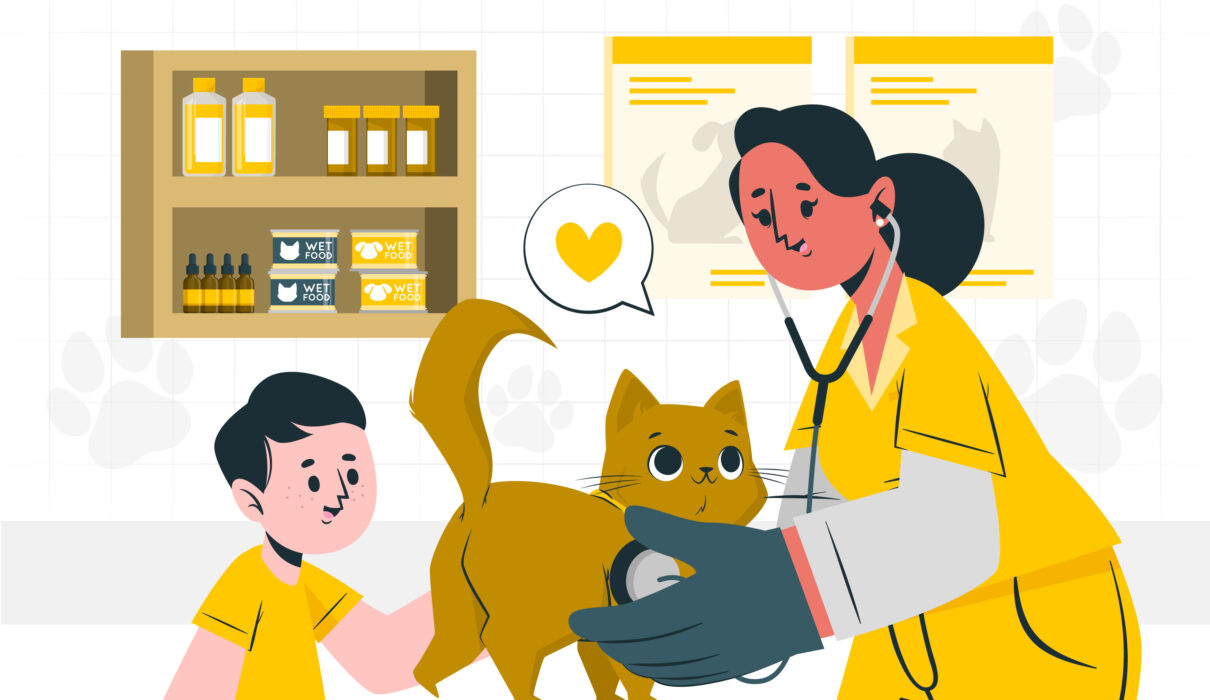Pets bring joy and companionship into our lives, but ensuring their well-being requires understanding the common health issues they may face. By addressing these concerns early and taking preventive measures, you can help your furry friends lead a long, happy, and healthy life. Here are the top 10 common health problems in pets and how you can prevent them.
1. Obesity
Obesity is a growing issue among pets, particularly in dogs and cats. Overfeeding and lack of exercise are the primary causes. Obesity can lead to diabetes, joint problems, and heart disease.
Prevention Tip: Feed your pet a balanced diet tailored to their breed, size, and activity level. Engage them in regular physical activities like walks, playtime, or training exercises.
2. Dental Diseases
Dental problems, such as gum disease and tooth decay, are common in pets. Bad breath, difficulty eating, and swollen gums are signs of oral health issues.
Prevention Tip: Brush your pet’s teeth regularly using pet-specific toothpaste. Provide dental treats and schedule professional cleanings with your veterinarian.
3. Parasites (Fleas, Ticks, and Worms)
Parasites like fleas, ticks, and worms can cause discomfort and serious health issues such as anemia, skin infections, and internal organ damage.
Prevention Tip: Use veterinarian-recommended parasite preventatives, keep your pet’s living area clean, and check their fur for ticks after outdoor activities.
4. Skin Allergies
Skin allergies in pets are often caused by environmental factors, food, or parasites. Symptoms include excessive itching, redness, and hair loss.
Prevention Tip: Identify and eliminate allergens from your pet’s environment. Consult your vet for hypoallergenic diets or medications to control symptoms.
5. Urinary Tract Infections (UTIs)
UTIs are common in cats and dogs and can cause frequent urination, blood in the urine, and discomfort.
Prevention Tip: Ensure your pet stays hydrated and maintains a healthy diet. Promptly address any changes in urination habits by consulting your vet.
6. Ear Infections
Pets, especially dogs with floppy ears, are prone to ear infections caused by bacteria, yeast, or mites. Signs include head shaking, scratching, and a foul odor from the ears.
Prevention Tip: Regularly clean your pet’s ears with vet-approved solutions and check for signs of infection. Avoid over-bathing, as moisture can lead to infections.
7. Arthritis and Joint Problems
As pets age, they can develop arthritis or other joint issues, leading to reduced mobility and discomfort.
Prevention Tip: Maintain your pet’s ideal weight to reduce joint strain. Provide a comfortable bed and consider joint supplements like glucosamine as recommended by your vet.
8. Heartworm Disease
Heartworm is a serious condition transmitted by mosquitoes, primarily affecting dogs and cats. It can lead to heart failure if untreated.
Prevention Tip: Administer monthly heartworm preventatives prescribed by your vet and reduce exposure to mosquito-prone areas.
9. Respiratory Infections
Respiratory infections, such as kennel cough in dogs and feline viral infections in cats, can spread quickly in multi-pet households or shelters.
Prevention Tip: Keep your pet’s vaccinations up to date and avoid exposing them to other sick animals.
10. Cancer
Cancer is a leading cause of death in older pets and can manifest as lumps, weight loss, or behavioral changes.
Prevention Tip: Schedule regular vet check-ups to catch any signs early. Provide a healthy diet and minimize exposure to environmental toxins
General Preventive Care Tips
- Regular Veterinary Visits: Annual check-ups help detect health issues early.
- Vaccinations: Stay on top of your pet’s vaccination schedule.
- Proper Nutrition: Choose high-quality, age-appropriate food for your pet.
- Exercise: Regular physical activity keeps your pet physically and mentally fit.
- Grooming: Regular grooming sessions ensure your pet’s coat, nails, and ears stay healthy.
By understanding these common pet health problems and taking proactive measures, you can help ensure your pet stays happy, healthy, and by your side for years to come.
Remember: Your veterinarian is your best resource for tailored advice on your pet’s health and wellness. Stay vigilant, and don’t hesitate to consult them if you notice anything unusual about your pet’s behavior or appearance.


